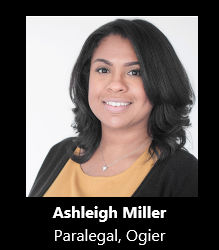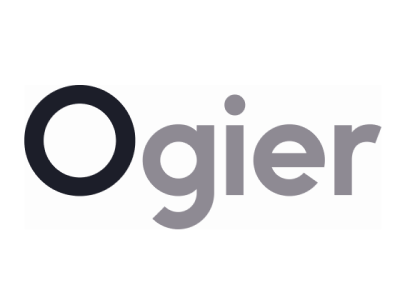 Whilst some countries in the Caribbean have an efficient trademark renewal process, for the most part renewals cannot be filed electronically and can be more time-consuming than brand owners and foreign trademark practitioners may expect based on their own local practice. Ashleigh Miller, a paralegal in Ogier’s Intellectual Property group, encourages brand owners to start thinking about their Caribbean renewal strategy at least 12 months before expiry and provides renewal instructions as early as six months prior to the deadline for the following reasons:
Whilst some countries in the Caribbean have an efficient trademark renewal process, for the most part renewals cannot be filed electronically and can be more time-consuming than brand owners and foreign trademark practitioners may expect based on their own local practice. Ashleigh Miller, a paralegal in Ogier’s Intellectual Property group, encourages brand owners to start thinking about their Caribbean renewal strategy at least 12 months before expiry and provides renewal instructions as early as six months prior to the deadline for the following reasons:
- Unclear status of registrations
Whilst a 10 year renewal period is common, renewals do not always fall due every 10 years in the Caribbean. Indeed, terms of registration and renewal vary throughout the region and some countries have registration and renewal terms which vary depending on the type of application initially filed. Sometimes we receive instructions to renew trademark registrations which, upon further investigation, have already expired, occasionally due to a prior renewal application filed by a third party going unprocessed due to incompleteness or one or more miscalculations of the next renewal deadline based on a misreading of the registration certificate leading to incorrect docketing.
- Chain of title recording issues
We also commonly receive instructions to renew trademark registrations in a particular name and address only to discover, on closer inspection, that a prior application to record a change of name/address or file an assignment was never processed by the Registry, perhaps due to incompleteness and/or a formality error and, has therefore not yet been recorded. This is most often the case in countries where the Registry takes several years to process recordal applications and such applications have not been monitored closely enough.
In other cases, brand owners have opted not to keep their name and address current before the relevant trademark Registry, perhaps due to the requirement for original documents with onerous formalities and/or the cost of recording updates as and when they occur. In such circumstances it is necessary to try to gather the relevant documents and signatures to record such updates at the same time as renewal, which can be difficult in cases where original signatures are required from companies which have since dissolved.
- Time to conduct status and verification searches
Where physical searches of trademark records must be conducted in order to ascertain the current status of a registration and/or the proprietor details on record to ensure that a renewal is filed correctly, additional time is required to gather the relevant information. In certain countries, it is not possible for the local trademark agent to conduct the search themselves and it can take weeks or even months for the Registry to provide search results.
- Requirement for original documents with formalities
Even in the age of electronic signatures, many Caribbean countries call for original signed and notarised and/or legalised powers of attorney and other evidentiary documents, such as affidavits, declarations and/or Companies House / Registry certificates e.g., filed in support of an update to a proprietor name or address. It can take more time than brand owners may plan for to get these documents ready for submission as much depends on the availability of the relevant signatory and their capacity to get before a notary, especially in these times of increased remote working.
- Annual fees must be paid with the renewal application
Separate and apart from renewals which extend the life of a trademark registration, in the Cayman Islands, Honduras and the Turks and Caicos Islands it is also necessary to pay an annual fee each year for the life of the trademark in order to keep it in good standing and enforceable against third parties at all times. In Honduras and Turks and Caicos, renewal applications cannot be filed until all outstanding annual fees are paid up to date. Whilst the process of making annual fee payments is relatively quick, depending on the value of the fees to be paid, prepayment may be required at the agent level and therefore the time it takes to arrange and submit the payment should also be a factor to consider when sending renewal and annual fee payment instructions.
Written by Ashleigh Miller, paralegal, Ogier in the Cayman Islands
| MORE NEWS | | WRITE FOR OUR NEWSLETTER |











